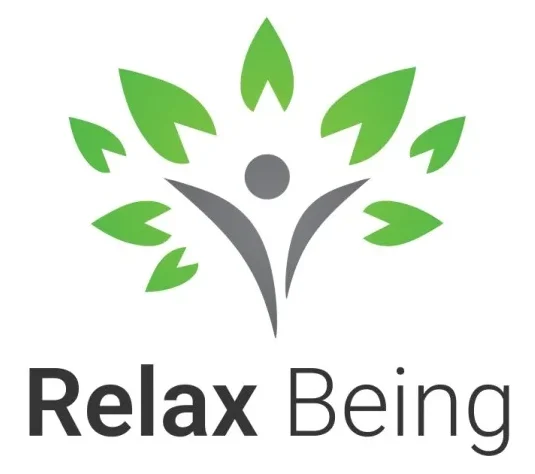Social Media and Teen Mental Health
How Does Social Media Affect Teens?
Discover the Social Media and Teen Mental Health, Learn how online platforms impact self-esteem, anxiety, and well-being, plus tips for teens to build a healthy digital balance. From my experience working with youth programs, I’ve seen how heavy use of platforms can shape self-image and body perception, while newness and constant technology updates keep teens engaged longer than ever. Researchers are evaluating the long-term outcomes of these patterns, and there’s strongly growing evidence suggesting that a number of ways social media affects young minds, influencing everything from mood swings to social interaction skills.
Yet, there are positive sides too. For many teenagers, social media and teen mental health are connected in supportive ways. Online platforms provide a space to connect, express creativity, and discover communities they resonate with. The key lies in balancing the heavy exposure with real-world interactions and mindful use. Researchers emphasize monitoring habits, understanding the long-term effects, and encouraging ways to leverage technology safely. Observing these patterns personally, I’ve found that teens who are aware of these links between social media and their well-being are better equipped to navigate the digital world without letting it dominate their body and mind health.
The Benefits of Social Media on Teen Mental Health
As someone who has worked closely with teens navigating the digital world, I’ve observed first hand how social media and teen mental health are influenced in nuanced ways. When used with moderation and clear boundaries, it provides opportunities for self-expression, creative expression, and meaningful connection. Online communities offer support, emotional support, and safe spaces for identity exploration, fostering confidence and self-esteem. Teens can improve communication skills through peer interaction and social engagement, while also discovering learning, educational content, and networking possibilities that broaden their personal growth.
The benefits of social media and teen mental health are also evident in its ability to create a sense of belonging through shared experiences and friendships, enhancing resilience, motivation, and coping mechanisms. Thoughtful engagement encourages awareness, discussion, and guidance, promoting digital literacy, empathy, and encouragement. While the risks are well-documented, research highlights that mindful use can significantly enhance social networks, collaboration, social interaction, and overall mental well-being. In my experience, when teens are given the right advice and tools, social media transforms from a potential stressor into a platform for positive, supportive growth.
Fostering Social Connection and Support Networks
For many teens, social media and teen mental health go hand in hand with connection and support. Social media has become more than just scrolling; it is a lifeline that keeps them connected when in-person interactions are limited or stressful. During adolescence, navigating challenges and anxiety can feel overwhelming, yet online platforms offer a sense of community and social support that traditional spaces sometimes cannot provide. A 2022 study by Smith, 2022 found that marginalized groups, including LGBTQ+ youth, often find solace in online groups, where they can share experiences, seek advice, and feel acceptance that may be missing from their immediate environment.
From my own experience working with adolescents, the ability to connect with friends, family, or like-minded peers online can significantly reduce isolation and loneliness, fostering a belonging that strengthens mental resilience. These social spaces allow teens to express themselves safely, confront challenges, and receive emotional support, creating an invaluable bridge between real-world struggles and meaningful social connections.
Opportunities for Learning and Personal Growth
From my experience observing teen engagement online, social media and teen mental health also intersect with learning and personal development. Platforms like YouTube, TikTok, and Instagram offer a space rich with educational content on various topics, from mental health awareness to fitness, career advice, and study strategies. According to the Journal of Adolescent Health, 2021, teens who actively engage in online learning feel more motivated and confident in their ability to manage personal challenges and mental health issues. Studies, including Mares 2021, highlight that these platforms serve as an avenue where teens can express themselves creatively through photography, writing, art, or video, supporting both self-expression and the fostering of a sense of purpose.
By using social media intentionally, teens can explore their personal identity, develop skills, and build resilience, an important factor for mental well-being. I’ve seen teens grow more confident and motivated when they find communities that value creative expression, allow them to engage with meaningful topics, and provide resources for personal development. In this way, social media is not just entertainment; it becomes a dynamic space to learn, express, and cultivate skills that contribute to lasting mental health awareness.
The Risks of Social Media and Teen Mental Health
Increased Risk of Anxiety and Depression
From my experience observing teens and their social media habits, it’s clear that excessive use can deeply affect mental health. Adolescents constantly scrolling through curated images of others’ lifestyles often report feelings of inadequacy, loneliness, and low self-esteem. According to JAMA Psychiatry, 2021, researchers found that constant exposure to these idealized online worlds can trigger anxiety and depression symptoms, especially when teens measure themselves against the filtered realities they see. Firth et al., 2021 also highlighted how social comparison amplifies these struggles, making ordinary experiences seem insufficient.
Teens face mounting pressure from social media platforms, where filtered photos and altered photos distort reality and portray perfect life scenarios. Studies, including Perloff, 2022 and a 2022 study in Cyberpsychology, Behavior, Social Networking, reveal that exposure to idealized versions of peers often fuels envy, dissatisfaction, and the urge to measure up to unrealistic beauty standards. Over time, these pressures can exacerbate mental health issues, leaving teens vulnerable to long-term anxiety and depression, even when they consciously know the images are manipulated.
Sleep Disruptions and Mental Health Consequences
Excessive social media use can also disrupt sleep, another factor in social media and teen mental health. Studies like Woods and Scott (2020) highlight that excessive screen time, especially on phones late at bedtime, often leads to sleep disturbances. Teens report difficulty falling asleep, poor sleep quality, and insufficient sleep duration, which are all signs of disrupted circadian rhythms. Over time, these sleep disruptions make teens more vulnerable to mood swings, irritability, and a heightened susceptibility to depression and anxiety.
From my perspective, even brief nightly scrolling sessions can trigger a cascade of sleep health issues. The late night exposure to bright screens seems minor but profoundly impacts the brain’s ability to wind down. Addressing sleep disturbances early is essential, as uninterrupted, restorative sleep is a cornerstone of teen mental health. Research consistently reinforces that moderating phone use at bedtime improves sleep quality and reduces the risk of mental health problems over time.
Cyberbullying and Online Harassment
Cyberbullying has become a serious threat in the digital age, significantly harming social media and teen mental health. Studies in Pediatrics indicate that around 15-20% of adolescents have been bullied online, experiencing psychological effects that are often devastating. Unlike traditional bullying, this form of online harassment occurs in an anonymous space, allowing bullies to exhibit harmful behavior that often goes unnoticed and unaddressed. From my experience working with young adults, the constant exposure to digital lives where negativity can spread instantly significantly undermines self-worth and mental health.
The victims of such attacks face a higher risk of depression, anxiety, and even suicidal ideation. The emotional impact is profound, not only because the abuse feels inescapable, but also because social media magnifies the humiliation in ways that were unimaginable before. Teens struggling with cyberbullying often withdraw from their friends and family, and the long-term psychological effects can linger well into adulthood. Addressing these threats early is crucial, as the intersection of online harassment, personal identity, and digital lives can shape both self-esteem and overall mental health.
Signs Social Media Use is Negatively Impacting Your Teen
Parents should recognize warning signs when social media and teen mental health are negatively linked. According to the Surgeon General and recent advisory from the American Psychological Association, unhealthy use often shows up when teens spend more time online than engaging in real-world friendships or socialization opportunities. You may observe your teen becoming self-critical, making frequent comparisons, or believing false realities that affect their mood. Everyday routines such as daily activities, school commitments, physical activity, or even sleep and rest may be disrupted, increasing anxiety, stress, or feelings of isolation.
Other signs include difficulty with concentration at school or work, strong cravings to check platforms, deceptive behavior about their online habits, or an inability to stop scrolling despite negative effects. Teens may neglect self-care, skipping meals or exercise, yet maintaining positive self-care in certain areas can indicate attempts to cope with social media stress. From my experience working with families, acknowledging these behaviors early allows parents to guide their teen back to balance, reinforcing healthy habits while keeping social media a positive part of life.
How to Protect Teens on Social Media
From my years of observing youth interactions online, it’s clear that social media can offer both benefits and risks. Experts emphasize a multi-pronged approach to protect social media and teen mental health. Families, tech companies, researchers, policymakers, advocates, and funders must work together to develop strategies that balance the potential harm of online exposure with the benefits of connection and learning.
Practical steps include creating clear guidelines, encouraging open conversations about online experiences, and using evidence-based tools to monitor and guide usage. A cross-sector collaboration ensures consistent support, from families at home to policymakers shaping regulations. By embracing a call to action that unites researchers, tech companies, and advocates, we can foster digital spaces where young people thrive, explore, and connect while minimizing risks.
Conclusion
Social media can be a double-edged sword for teens, offering incredible opportunities for connection, creativity, and learning, while also carrying risks that affect mental health, such as anxiety, depression, and cyberbullying. From my experience, guiding teens with boundaries and open communication ensures social media and teen mental health stay in harmony. By setting healthy boundaries, fostering open communication, and practicing self-regulation, teens can enjoy the advantages of using social media while minimizing the negative effects it harms.
Engagement in supportive online communities further enhances mental health and supports mental well-being when essential strategies are in place. Parents who actively participate in guiding their teens, offering guidance without judgment, and encouraging creativity and learning online, help foster confidence and resilience. When teens feel empowered to use social media thoughtfully, it transforms from a potential source of stress into a tool that supports, educates, and enhances their growth.

